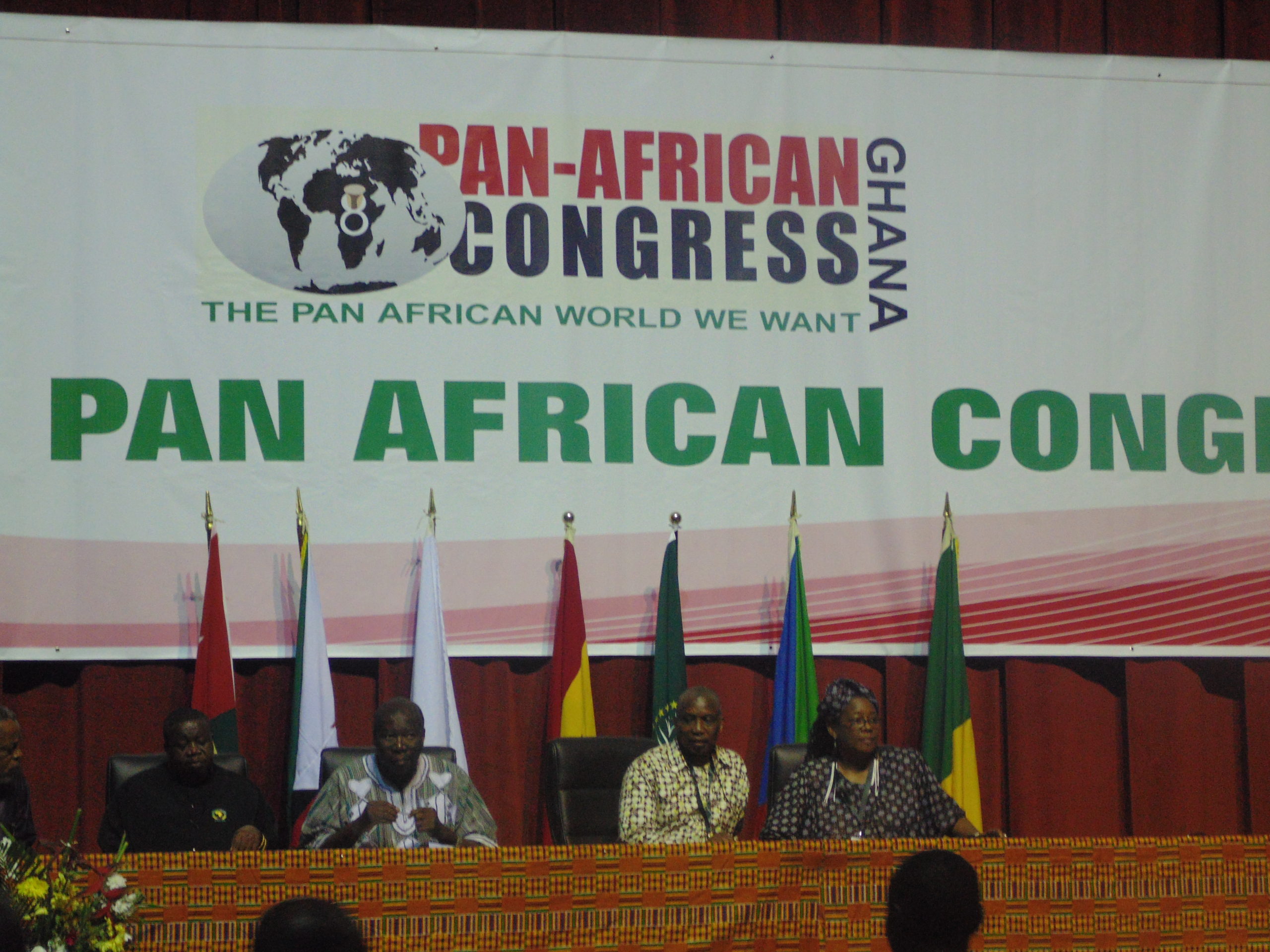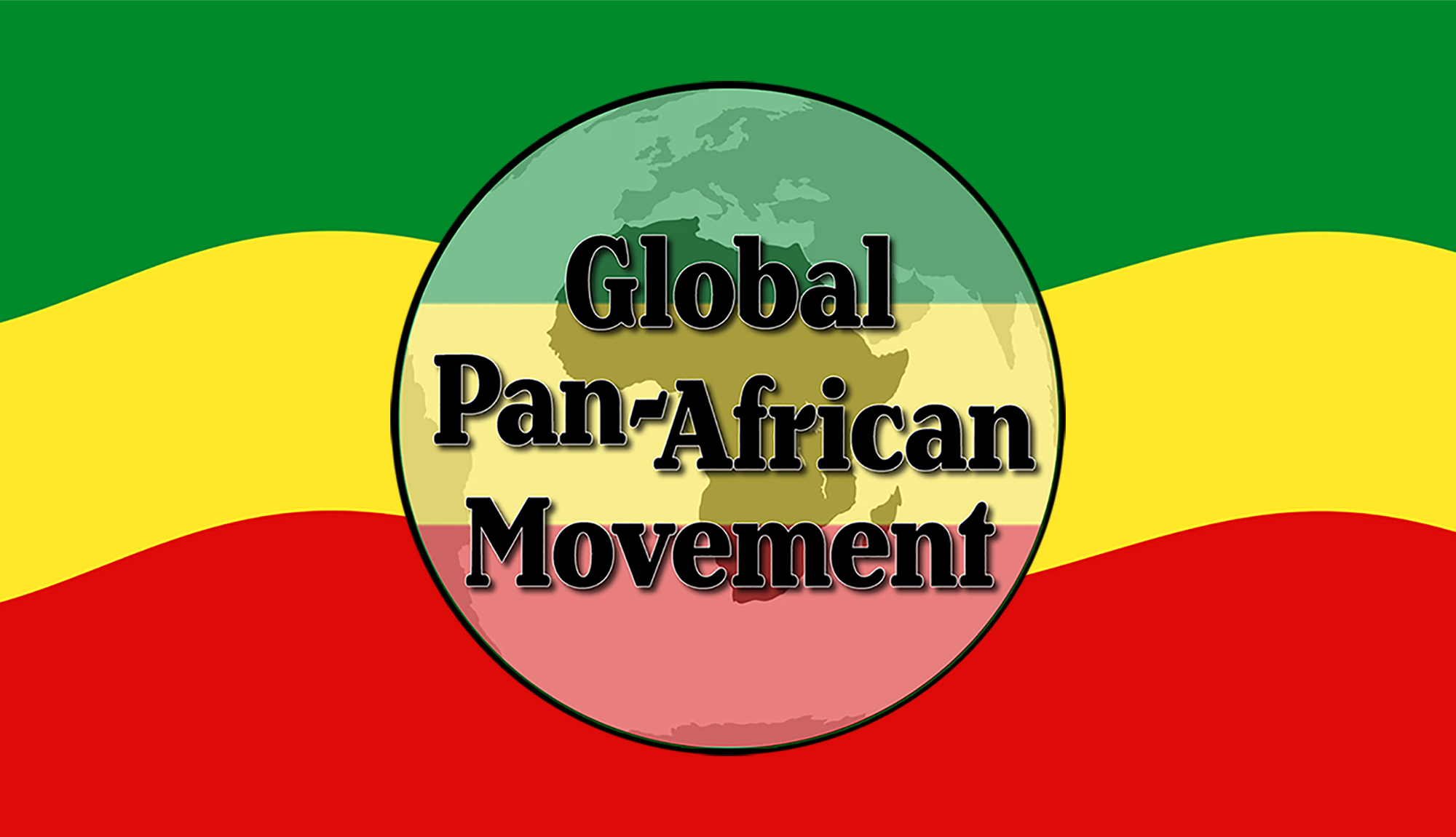Report of the First Preparatory Meeting of the North American Delegation to the 8th Pan African Congress in Accra-Ghana, Held at Howard University Blackburn Center, Washington DC, August 2, 2014
The first preparatory meeting of the North American Delegation to the 8th Pan African Congress in Accra, Ghana, was held at Howard University in Washington DC on August 2, 2014. Organized by the Pre-congress Preparatory Committee of the North American Delegation, the meeting was attended by over 80 persons. In attendance were representatives of national and international organizations such as the African Union, Baltimore Pan African Liberation Movement, Universal Negro Improvement Association (UNIA), National Black United Front (NBUF-DC), Universal African People’s Organization (UAPO), the All-African People’s Revolutionary Party (AAPRP), United Nations Working Group for People of African Descent, the Maryland Coordinator from the 6th region, the December 12th Movement, the International Association Against Torture and the World African Diaspora Union (WADU).
The goal of the meeting was to mobilize Pan African organizations and activists in North America to organize and engage in the process and develop recommendations and strategies for incorporation into the deliberations at the 8th Pan African Congress scheduled to take place in Accra Ghana.
Remarks
In his introductory remarks, Professor Horace Campbell, member of 8th PAC International Preparatory Committee and Governing Council, highlighted the historical importance of the Pan African Congress and the need for a robust participation of the Global African Family in the upcoming PAC in Ghana. Another member of the International Preparatory Committee, Professor Ikaweba Bunting, further emphasized the centrality of engaging different Pan African views, opinions, and constituencies in the process of the PAC – particularly with regard to what he called “the paradox of working with Africa’s political leaders and the nation states while also working to get rid of the same nation states.”

Ms. Viola Plummer, another member of the International Preparatory Committee, highlighted the historic role played by Pan African activists from North America in engaging with the Pan African process as well as with the African Union, and in ensuring that the 6th Region of the AU (the Global African Family) is recognized. This engagement was also integrated into the process that birthed the World Conference Against Racism in Durban, South Africa, in 2001.

The African Union was represented by its deputy ambassador to the United Nations, Ambassador Adonia Ayebare. The ambassador stressed the importance of engaging with the AU in the PAC preparatory process, while emphasizing that the pre-congress meeting was very important to the African Union. He also stated that the outcomes of the meeting would be an integral part of the PAC preparatory process.
Other international dignitaries at the meeting include Pan African activist from the Netherlands Beryl Biekman and Mireille Fanon Mendes-France, Chair of the UN Working Group of Experts on People of African Descent (WGPAD) and Chair of the Frantz Fanon Foundation. Ms. Biekman noted the importance of North American Pan Africanists for other regions, especially in the struggle against xenophobia and racism in Europe. She also emphasized the need to build a stronger relationship among the Global African Family to solidify the AU’s 6th Region in order to maintain a better engagement with the AU and Africa.

Ms. Fanon Mendes-France highlighted the work of her organization with regards to the rights of people of African descent and the engagement with the question of reparations.

Underlining the importance of Afro-descendants from Latin America, Mr. Humberto Brown spoke on the need to extend participation to other activists from the region, especially in Mexico and Canada. He stressed that people of African descent in Latin America and the Caribbean have benefited from the outcomes of the 7th Pan African Congress, specifically the World Conference Against Racism whose resolution became a tool for embedding anti-racism clauses in legal documents in that region.

Minister Akbar Mohamed, a member of the PAC International Preparatory Committee, spoke on the need to tackle the problem of religious based violence and Islamophobia. The international community as well as Pan Africanists should engage African leaders to end religious based violence, including the menace of Boko Haram in Nigeria. Pan Africanists should also join forces in solidarity with the people of Palestine to oppose the bombing and killing of innocent Palestinians.

Sessions and Deliberations
There were two deliberative sessions during the meeting. During these sessions, participants debated and contributed ideas to issues that they would like to be included in deliberative process at the 8th PAC in Accra, Ghana. The first session was moderated by Professor Ikaweba Bunting.

The second second session was moderated by Professors Makini Roy-Campbell and Lisa Aubrey. This session on the Pan African Women Liberation Organization (PAWLO) was focused on strategies to bring issues affecting grassroots women to the fore at the 8th PAC and beyond.

The deliberations at the PAWLO session and the general session were integrated into a single outcomes presented below.
- Institutionalized sanctioning of violence against African Americans has become a national problem where an African American is killed every 28 hours by an agent of the state, according to a study by the Malcolm X Grassroots group. Specific policies that lead to this violence, include but are not limited to,
i. Stand your ground laws
ii. Mass incarceration
iii. Environmental racism - The impact of the Prison Industrial Complex and its debilitating impact on African Americans and African American communities is strongly condemned and needs to be redressed.
- The Structural violence and illnesses that affect African Americans, especially the multifaceted health effects of enslavement, Jim Crow, exploitation and poor health conditions.
- Persistence and Intensification of anti-Black racism in all spheres of existence in North America.
- The unjust judicial system and legal structures to criminalize African Americans and the use of the judicial system to disenfranchise African American communities.
- Unemployment, poor working conditions and growing impoverishment of African Americans, especially wage disparities for women and especially women of African descent in USA.
- Strengthening and supporting the African family by opposing patriarchal and sexist behavior and the persistence of stereotyping and devaluing African American women.
- Strengthen the anti-imperialist, anti-repression and peace forces in the US.
- Strengthening of the public education system in urban America; specifically to oppose the dismantling of quality public schools and the privatization of public institutions.
- Review national and international documents pertaining to women, e.g. UN and Durban statements to clarify and redefine terms and ensure that gender is infused throughout all document and to increase male allies.
- Opposing Environmental Racism, toxic waste dumping and other forms of dumping of bad food, bad air and bad water in the communities.
- Oppose the Anti-Muslim and Anti-immigrant hysteria and xenophobia which is being built up: oppose attacks on immigrants, especially children.
- Recognize the role of identity in raising self-worth of African children especially girls, and develop a Plan of Action for gender appropriate programs, e.g. rites of passage.
- Recognize class contradictions among African women: women in power do not address issues of grassroots women, e.g. violence against women.
- Call on the AU and the International Organizing Committee of the 8th PAC to postpone the date to provide more time for organizing the Pan African constituency.
- Propose at least 4 other meetings in places such as Atlanta, Chicago, New York, Los Angeles and elsewhere, as resources permit.
- Urgency of working with the Caribbean and Canadian section of the movement.
- Pan African Women should hold a Pre-Conference Meeting at the 8th PAC: consider what we need as African women globally.
- Send a letter of support to the Caribbean Community (CARICOM) in relation to their position on Reparations.
- That there were mischievous efforts to divide the two different groups of African descendants, viz historic group that came out of enslavement and the recent immigrants. This mischief is also promoted by those simply interested in remittances and not in the conditions of Africans in the Americas.
- Respect and consistently address the intersectionality of gender, race, and class.
- Support the struggle of women for reproductive and childcare rights and oppose all forms of violence against men and women (including forced sterilization) as a reproductive rights issues.
- Will work closely with the International Decade for People of African Descent, IDPAD.
- Meeting condemned the bombing of Palestine and killing of innocent women and children and called for the lifting of sanctions against the peoples of Cuba and Zimbabwe.
Audio
Click here to listen to audio recording of the pre-congress meeting.
Photo credit: The Indigenous Lens


